- Home
- J. A. Konrath
Flee, Spree, Three (Codename: Chandler Trilogy - Three Complete Novels) Page 47
Flee, Spree, Three (Codename: Chandler Trilogy - Three Complete Novels) Read online
Page 47
As anyone who’s ever played around with an electric fence knows, electricity always wants to ground itself. Jump in the air while touching the hot wire of a fence and you are as safe as a bird sitting on a power line. Stand on the ground and try that, and the electricity will seek the path of least resistance in its quest for a ground, in this case through your body. With an electric fence, you get zapped. With a high-tension power line, you’re fried.
That’s why there were insulators between the wires and the towers—without them, electricity would jump to the towers, seeking the ground. Anything that connected wire to ground—a rope, a pole, a tower, a vehicle that wasn’t properly insulated—would work. If there is some direct path through you to the ground, electricity will take it.
We were hanging at least thirty meters in the air, so that wasn’t my immediate concern. What had me scared out of my mind was arcing.
Because there was so much voltage going through the wires, an energy field formed around them. This energy liked to jump to nearby objects. An arc is basically a lightning bolt, which shoots off the wire and fries anything with sufficient mass that comes close.
In this case, us.
And like lightning, an electric arc could blind, burn, or blow holes. To prevent that, we needed to energize our bodies to the same voltage as the line, as those birds did, due to their limited size. The nylon envelope we hung from was a poor electrical conductor, so we weren’t energized, hadn’t bonded on. By touching the wire with something metal and holding on to the other end, I could prevent the spark from jumping. The electricity would run safely through us without the unpleasant and deadly burn, and since we weren’t touching the ground, it wouldn’t explode out of our bodies.
At least that was the theory.
But there was nothing in the basket that would allow us to bond on to the wire. Tequila’s AR-7 was no good—it had a plastic stock. No metal pole or antenna or wire. The only thing metal were the cables holding the gondola to the burner.
The burner.
“Shield your eyes!” I yelled, and as the basket continued to sway I hopped onto the edge in a crouch, holding onto the pipes. Perched precariously there for the swing back to the line, I kicked the nearest burner. Its bolts held it firm.
The line threw a spark, zapping the wicker basket like a scene from Frankenstein’s lab, causing it to ignite. Fleming was quick to grab the fire extinguisher and snuff out the flames.
“What are you doing?” Tequila yelled.
“Bending the burner to touch the line!”
Either Tequila understood how electricity worked, or he was the most trusting man I’d ever met, because he joined me on the basket’s edge and lent his foot to the cause. As we rocked, Tequila and I kicked that bastard until it bent off the pole at a right angle.
“Now swing,” I told him.
As if we were competing on a playground, we rocked the gondola back and forth, the burner getting closer and closer to the wire, sparking each time. Finally, when we were again parallel to the ground, the burner caught on the wire with a brilliant flash of light, then stuck there. Tequila and I hung off the edge of the basket, and Fleming rolled onto its side, like an ice cube in a spilled drink glass. The metal tube that attached the burners to the basket also ran along the lip, and electricity thrummed and tickled our palms.
“Touch the rim of the basket,” I told Fleming. Then I turned to Tequila and told him not to let go.
“Wasn’t planning on it.”
We chinned up into the basket, then Tequila helped Fleming onto the top, continuing to hold her hand as he followed her up. I reached for Tequila’s hand before letting go of the lip, so we all stayed connected. The wire crackled right next to us, hooked onto the burner, its induction making all the hair on my arms stand up.
“If we lose contact, it will arc at us. We have to make sure we’re linked to the line at all times.”
We all instinctively ducked when we heard the gunshot. I looked to the east and saw Hammett’s balloon, a hundred meters away and seventy meters above us. She was leaning out of the gondola, holding her .45 in a two-handed grip.
“I got an idea. Backpack,” Tequila said, holding out his hand to Fleming. He placed his leg atop hers, then dug out an aluminum case with a bullet ding in the side. Tequila removed the remote control helicopter Harry McGlade had loaned us.
“I don’t think we can all fit inside,” Fleming said.
He winked at her. “Trust me. Good things come in small packages.”
I could swear I heard my sister sigh like a lovesick teen. Tequila fished out the remote control and then the diminutive whirlybird was up in the air, heading toward Hammett’s balloon.
Hammett
“In the field, you’ll sometimes be confronted with things that don’t make sense,” the Instructor said. “If you waste time puzzling over them, your enemy will have the advantage.”
As she took aim at the tiny musclehead with the gymnastics chops, Hammett saw a bird fly up out of his hands.
By the time she processed what she was seeing—a toy helicopter—it had closed to within ten meters.
“It’s a remote control chopper,” Speed said.
“Get down!” Hammett ordered, diving for the floor of the gondola.
“Why? It’s just a toy. It can’t—”
The toy fired a single bullet, entering Speed’s head through his nose, exiting out the back behind his right ear. He folded himself into a pile next to Hammett, an expression of surprise frozen on his stupid face.
Hammett looked up, raising her weapon and seeking the helicopter. It wasn’t in her vision. She killed the propane, listening for the buzz of its tiny propellers, and heard it somewhere above. Chancing a look, she saw it alongside the outside of her balloon, halfway up.
Could those little spinning blades rip the nylon? Hammett doubted it. And even if it had a few more bullets, they wouldn’t do much to a thirty-meter-tall balloon.
That’s when the helicopter exploded.
For a moment, there was just ear-numbing sound and a spray of smoke and toy parts. Then Hammett saw the rip in the envelope. A rip the size of a twin-size bedsheet.
The balloon began a rapid descent, and Hammett realized, with hyperawareness bordering on awe, that she would probably die when she hit the ground. Working fast, she kicked on both propane burners and opened them up fully. It slowed the balloon down, but not by much, and from this height impact would surely be—
BANG!
The thought was knocked right out of her head, and Hammett found herself face-to-face with a latticework of aluminum supports. She hadn’t hit the ground. Hammett had hit the tower.
Taking advantage of the luck in the case it was short-lived, she immediately tucked her gun into her holster and scrambled out of the gondola and onto the electrical tower. Crossing a span hand-over-hand, Hammett got away from her balloon—in case it caught fire—and made her way to the maintenance ladder on the corner. She was still thirty meters from the ground, and about five from the high-tension wires above her. As her envelope deflated, she searched for Chandler’s balloon, seeing the basket fifty meters away, its envelope almost directly above her.
Hammett began to ascend.
Lund
Lund forced his lungs to function, his ears to stop ringing, his head to clear. Using his hands, he lifted himself up in a push-up, then scrambled to his feet. He had no horses, no weapon, and nowhere to hide.
The ATV’s engine buzzed from the end of the row. The slight sheen of the man’s sharkskin suit blinked between twisted branches. He’d be around the row and on top of Lund in a matter of seconds. And though the man had missed while moving at full speed, a stationary shot at point-blank range would be much easier.
Lund glanced around for a branch, but the orchard was well kept, and there was no dead wood to be found. He stepped back into the tree line just as the vehicle cleared the row and the man’s narrowed eyes focused on him.
Lund wasn’t sur
e if it was possible to brace yourself before being shot, but he tensed anyway. He wondered, in a nonsensically detached way, what his last thought would be, and how long he’d be able to hold on to it before he died.
But the ATV didn’t fire. Perhaps it indeed was out of ammo, and Lund had caught a break.
The man got off the bike. He was a little shorter, a little broader. Lund had been in his share of scraps throughout the years, and could hold his own in a fair fight.
But the suited man was a professional. And pros weren’t concerned about fighting fair.
He smiled, and carefully removed a black object from his pocket. Lund immediately thought it was a gun. But a moment later there was a metallic clicking sound—the black object was the handle of a thick-bladed folding knife, four inches if it was one and looking substantial enough to hack down a sapling.
“I like knives,” the man said. “They are so personal. So intimate. There is nothing quite like looking closely into a man’s eyes, seeing the disbelief as his blood drains from his body.”
Lund backed up, feeling a prickly branch poke the back of his head.
“Nice shoe,” he said. “What happened to the other one?”
The suited man’s smile soured.
“I am going to cut a hole in you big enough to stick my foot in. Then you can be my lost shoe.”
Lund was sure he wouldn’t like that. He reached up, to the tree branch. “You like cutting people up. But how’s your fielding?”
“What?”
Recalling his college days pitching for the Minnesota Golden Gophers, Lund plucked an apple from the branch. Heavy and hard, it was green as the grass and not yet ripe. Perfect. He threw a wicked slider, aiming at the man’s face.
The suited man plucked the apple out of the air with his left hand, a harsh slapping sound as fruit met palm.
Undaunted, Lund grabbed another, this time slinging a curve.
Wicked knife dropping to the ground, the suit snatched the second apple, equally adept catching lefty.
“That is the best you can do?” the man asked, flashing a wide grin. “Throwing apples at me?”
Lund plucked a third and let loose with his best pitch, a fastball, and drilled it dead center into the suited man’s nose, smacking the cocky grin right off his face and knocking him onto his butt.
“You only got two hands, asshole,” Lund said, taking off before the guy had a chance to recover. He headed in the direction the horses had gone, yanking his phone from his pocket as he ran. Punching up his directory, he stabbed it with a finger. Then he held it to his ear and prayed for an answer.
One ring. Two.
“Chief Ryker.”
“Val, I need your help.”
“Where the hell are you, Lund?”
So she wasn’t happy with him. He couldn’t blame her. But regardless of how she felt, she’d come through with the park ranger, echoing every bit of his training drill story and fibbing that she’d been in personal contact with a representative of the US Army.
Lund knew he was pushing her trust coming back for more, but at this point, she was his only option. “The orchard to the west of Devil’s Lake.”
“So the nine-one-one calls are about you. There’s gunfire reported.”
“Anyone hurt?”
“Not that I’ve heard.”
A miracle. Unless you counted the guy he’d just taken out with an apple.
Up ahead he saw the dark shadow of either Banshee or Bo through the trees. The horses had stopped to eat apples or grass, no doubt. He could only hope they didn’t founder after all the running they’d done. Val’s niece would string him up. From the sound of it, Val already wanted to. “Listen, I need—”
“What’s going on, Lund? And what are you doing in the middle of it?”
“Long story. Can you hitch up my truck and—”
“Already did. I’m at the park looking for you. And the sheriff’s department is on the way.”
“Good. The faster you can get here, the better. And Val?”
“What?”
“I hope you have your gun.” He cut off the call, not wanting to explain any further. With the sheriff’s department on the way, there was no time to lose. He had to get out of here if he was to have any chance of helping Chandler, wherever she might be.
By the time Lund had gathered the horses and made it back to the road, his red truck was pulling the four-horse stock trailer up the hill toward him. Val was out of the driver’s seat almost before she stopped.
Val was a beautiful woman, and one of the strongest Lund had ever known. One of those blond-haired, blue-eyed, stoic Norwegians, she also had a knack of making him feel as though she didn’t need him, as if she didn’t need anybody, a fact that probably shouldn’t grate on him as much as it did.
At least, not anymore.
A crease dug between her eyebrows, her mouth pinched in a frown, and she glared at him as if pondering how she’d like to drag him back to Lake Loyal and throw him into the PD’s single holding cell. “All right, Lund. Time to come clean.”
A county sheriff’s cruiser crested the hill from the other direction, light bar flashing. To Lund’s relief, the county car turned into the orchard’s farm market parking lot on the opposite side of the road.
The last thing he wanted was to answer questions. Val’s or the deputy’s. He needed to make this quick. “There’s a man straight through the trees, near the fence. He was the one shooting.”
“At you?”
He nodded.
“At the horses?”
Lund chose not to answer that one. “I hit him with an apple.”
“What?”
“Never mind. We have to get out of here, Val. Fast.”
She shook her head. “Get out of here? Are you nuts?”
“You don’t understand. This is not a law enforcement matter.”
“Gunshots aren’t a law enforcement matter?”
“It’s beyond you or the deputy over there. This is…it’s…”
“It’s what?”
“Complicated. You have to trust me. We need to load the horses and get the hell out of here.” He turned away from her and led the animals to the rear of the trailer.
Val followed, tossing him a halter and lead rope for Banshee and taking Bo and Max’s reins. “We’ll load them, then you can explain. How’s that?”
He didn’t answer, figuring silence was the most expedient option. Val was cooperating for the moment, and anything he said would likely mess that up. He’d deal with the explanation when they got to that point. He swapped Banshee’s bridle for her halter and led her into the trailer, tying her in front. Then he helped Val load the other two and climbed behind the wheel.
The moment Val got into the truck, she narrowed her eyes, giving him that cop stare that made him want to squirm even in cases when he had nothing to hide. “Talk.”
Val’s cell rang, and she glanced at the readout. “Oneida. I have to take this.” She answered, questioning the dispatcher of the village of Lake Loyal’s police department in a low voice.
Taking advantage of the distraction, Lund pulled out onto the road, driving away from the deputy to the intersection with Highway 12.
When Val ended the call, he could feel her eyes return to his face. “You wouldn’t know anything about two hot-air balloons that were stolen and flown into power lines north of here?”
Lund turned north.
Out of the corner of his eye, he could see her shaking her head. “How on earth did you get involved in…whatever is going on?”
He gave her the CliffsNotes version of what had happened in the past few hours, skipping the part where Señor Suit shot at the horses.
“You didn’t answer my question.”
“A woman named Chandler needed my help.”
“A woman?”
He’d like to think he heard a note of jealousy in her voice, but even if the feeling was there, he doubted Val would ever admit to it. “She works for the
government, or at least she did. Her sister is with her, and she’s injured. We need to help them.”
She brushed her hair back from her face and gave a heavy sigh. “I’ll go along with that, provided this trip ends at the station, so I can find out exactly what’s happening.”
“Chandler won’t agree to that.”
“She doesn’t have to agree. I have handcuffs.”
Lund didn’t think Chandler would agree to being cuffed either, but decided there was no point in trying to explain. “These are the good guys, Val.”
“Then they shouldn’t be afraid to talk to the police.”
“Val, you don’t understand. Badger Ammo, it’s a black site.”
“A black site?”
“As in a make-people-disappear black site.”
“I know what a black site is, Lund. But here? In Wisconsin?”
“I know it’s hard to believe. But everything I’ve seen suggests it’s true. And that the people running it aren’t afraid to kill to keep it quiet.”
“Kill? You haven’t told me everything, have you?”
“And what are you going to do, Val? Rush in? Arrest people? Take on government agencies we’ve never even heard of because officially they don’t exist?” He shook his head. “Please, Val. I need your help.”
She froze, staring at him, as if watching their past play through the back of her mind. Finally, she nodded. “You have feelings for her?”
Lund didn’t want to answer. It would only hurt Val, even though she was the one who’d pushed him away. Even when he’d worked through all that had happened between them and was ready to look past it, she’d said she wasn’t ready for a relationship, that she might never be.
He cleared his throat. “We just met. But I like her a lot, yes.”
“I’d say it’s more than that.”
“Maybe I can’t wait any longer, Val. Maybe I need to move on.”

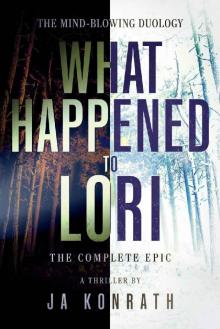 What Happened to Lori
What Happened to Lori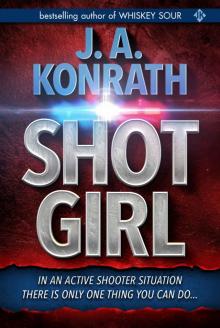 Shot Girl
Shot Girl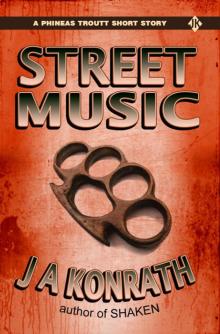 Street Music
Street Music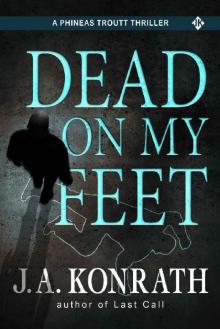 Dead on My Feet
Dead on My Feet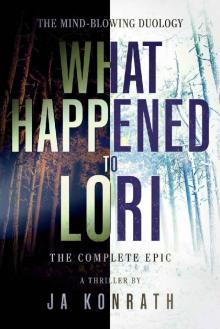 What Happened To Lori - The Complete Epic (The Konrath Dark Thriller Collective Book 9)
What Happened To Lori - The Complete Epic (The Konrath Dark Thriller Collective Book 9)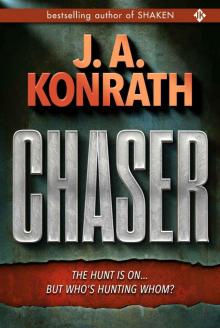 Chaser
Chaser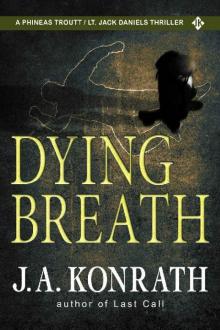 Dying Breath - A Thriller (Phineas Troutt Mysteries Book 2)
Dying Breath - A Thriller (Phineas Troutt Mysteries Book 2) Jack Daniels Six Pack
Jack Daniels Six Pack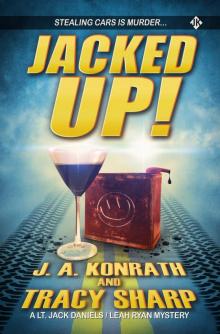 Jacked Up! (A Lt. Jack Daniels/Leah Ryan Mystery)
Jacked Up! (A Lt. Jack Daniels/Leah Ryan Mystery)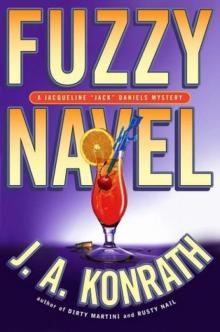 Fuzzy Navel
Fuzzy Navel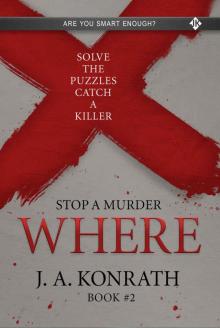 STOP A MURDER - WHERE (Mystery Puzzle Book 2)
STOP A MURDER - WHERE (Mystery Puzzle Book 2)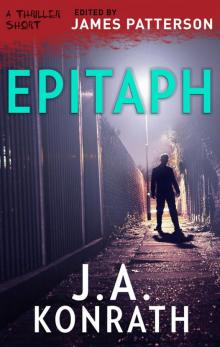 Epitaph
Epitaph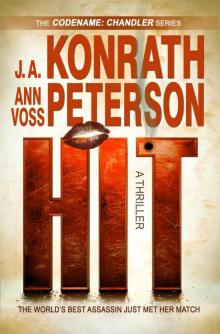 Hit: A Thriller (The Codename: Chandler)
Hit: A Thriller (The Codename: Chandler)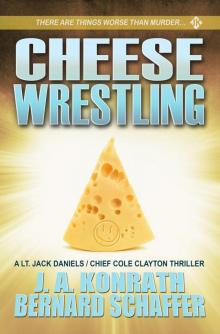 Cheese Wrestling: A Lt. Jack Daniels/Chief Cole Clayton Thriller
Cheese Wrestling: A Lt. Jack Daniels/Chief Cole Clayton Thriller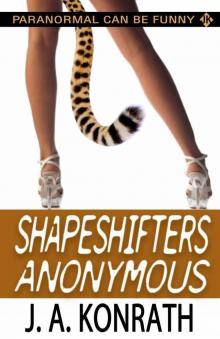 Shapeshifters Anonymous
Shapeshifters Anonymous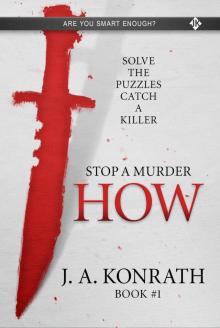 STOP A MURDER - HOW (Mystery Puzzle Book 1)
STOP A MURDER - HOW (Mystery Puzzle Book 1) Bloody Mary
Bloody Mary Dying Breath
Dying Breath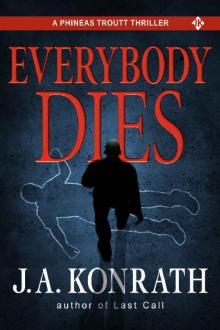 Everybody Dies - A Thriller (Phineas Troutt Mysteries Book 3)
Everybody Dies - A Thriller (Phineas Troutt Mysteries Book 3) DRACULAS (A Novel of Terror)
DRACULAS (A Novel of Terror) Shot of Tequila
Shot of Tequila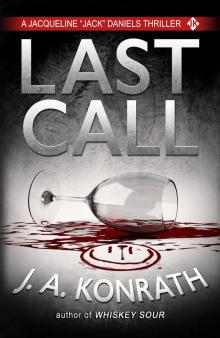 Last Call - A Thriller (Jacqueline Jack Daniels Mysteries Book 10)
Last Call - A Thriller (Jacqueline Jack Daniels Mysteries Book 10)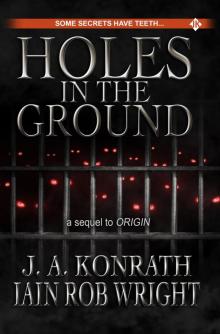 Holes in the Ground
Holes in the Ground![Shaken [JD 07] Read online](http://i1.bookreadfree.com/i1/04/01/shaken_jd_07_preview.jpg) Shaken [JD 07]
Shaken [JD 07]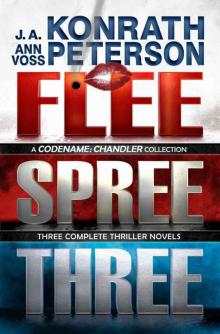 Flee, Spree, Three (Codename: Chandler Trilogy - Three Complete Novels)
Flee, Spree, Three (Codename: Chandler Trilogy - Three Complete Novels)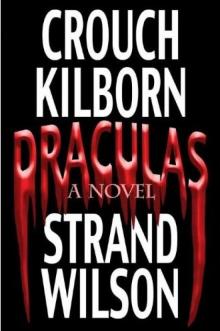 Draculas
Draculas Jack Daniels Stories
Jack Daniels Stories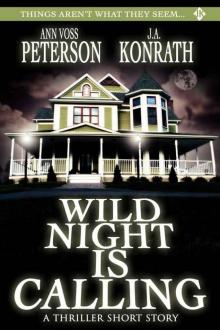 Wild Night is Calling
Wild Night is Calling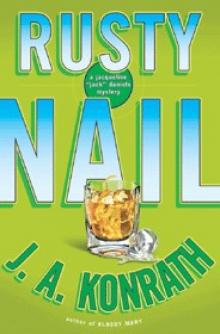 Rusty Nail
Rusty Nail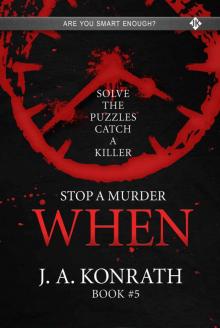 STOP A MURDER - WHEN (Mystery Puzzle Book 5)
STOP A MURDER - WHEN (Mystery Puzzle Book 5)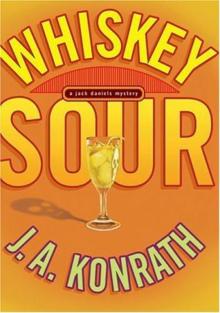 Whiskey Sour
Whiskey Sour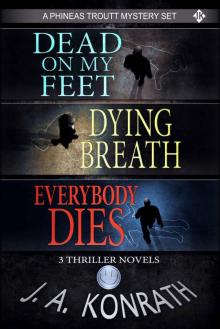 Phineas Troutt Series - Three Thriller Novels (Dead On My Feet #1, Dying Breath #2, Everybody Dies #3)
Phineas Troutt Series - Three Thriller Novels (Dead On My Feet #1, Dying Breath #2, Everybody Dies #3)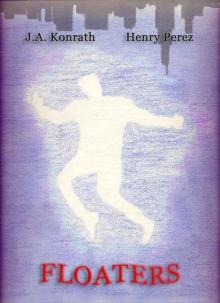 Floaters - A Jack Daniels/Alex Chapa Mystery
Floaters - A Jack Daniels/Alex Chapa Mystery J.A. Konrath / Jack Kilborn Trilogy - Three Scary Thriller Novels (Origin, The List, Haunted House)
J.A. Konrath / Jack Kilborn Trilogy - Three Scary Thriller Novels (Origin, The List, Haunted House)![Shaken (Jacqueline Jack Daniels Mysteries) [Plus Bonus Content] Read online](http://i1.bookreadfree.com/i2/04/10/shaken_jacqueline_jack_daniels_mysteries_plus_bonus_content_preview.jpg) Shaken (Jacqueline Jack Daniels Mysteries) [Plus Bonus Content]
Shaken (Jacqueline Jack Daniels Mysteries) [Plus Bonus Content]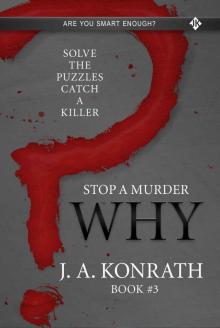 STOP A MURDER - WHY (Mystery Puzzle Book 3)
STOP A MURDER - WHY (Mystery Puzzle Book 3)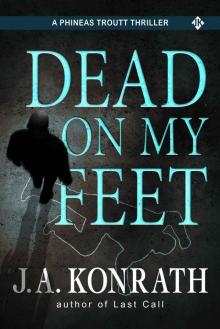 Dead On My Feet - A Thriller (Phineas Troutt Mysteries Book 1)
Dead On My Feet - A Thriller (Phineas Troutt Mysteries Book 1) Cherry Bomb
Cherry Bomb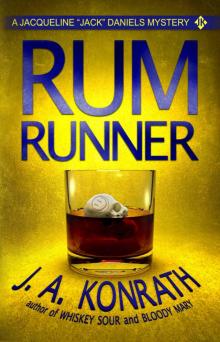 Rum Runner - A Thriller (Jacqueline Jack Daniels Mysteries Book 9)
Rum Runner - A Thriller (Jacqueline Jack Daniels Mysteries Book 9)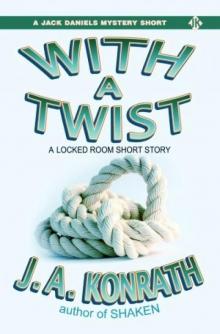 With a Twist
With a Twist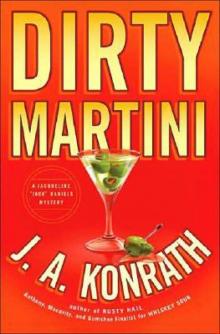 Dirty Martini
Dirty Martini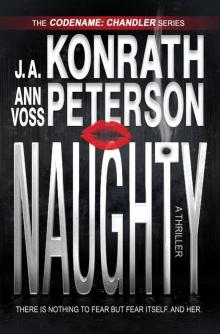 Naughty
Naughty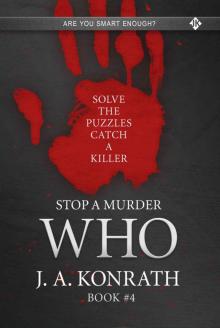 STOP A MURDER - WHO (Mystery Puzzle Book 4)
STOP A MURDER - WHO (Mystery Puzzle Book 4)